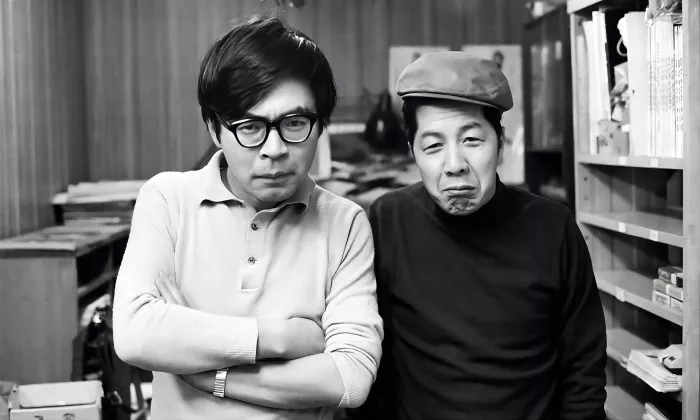Master of Storytelling
Hayao Miyazaki stands as a titan in the world of animation, revered for his unparalleled ability to weave captivating narratives that transcend age and culture. Through his works, he demonstrates a profound understanding of human emotions and the complexities of existence. Miyazaki possesses a rare gift for crafting stories that resonate deeply with audiences, tapping into universal themes of love, friendship, and the struggle between good and evil. His storytelling prowess lies in his ability to create rich, multidimensional characters who undergo transformative journeys, facing both internal and external conflicts along the way. With each film, Miyazaki invites viewers into immersive worlds filled with wonder and imagination, leaving an indelible mark on the landscape of animation.
Visual Poetry
In Miyazaki’s hands, animation becomes a medium of pure poetry, where every frame is meticulously crafted to evoke emotion and wonder. His attention to detail is unparalleled, with lush landscapes, intricate character designs, and fluid animation that breathe life into his fantastical worlds. Miyazaki’s visual style is characterized by its beauty and realism, drawing inspiration from nature and traditional Japanese art forms. Whether it’s the breathtaking vistas of “Princess Mononoke” or the whimsical charm of “My Neighbor Totoro,” each frame is a work of art in its own right, inviting viewers to immerse themselves in a visual feast for the senses.
Environmental Consciousness
Beyond mere entertainment, Miyazaki’s films often carry profound messages about the state of the world and humanity’s relationship with nature. He is a staunch advocate for environmentalism, and this passion is reflected in his work. Miyazaki’s films frequently explore themes of environmental destruction, the consequences of war, and the importance of preserving the natural world. Through his storytelling, he implores audiences to reflect on their impact on the planet and consider the consequences of their actions. Miyazaki’s environmental consciousness is not merely a backdrop for his narratives but an integral part of the storytelling, underscoring the interconnectedness of all living beings and the urgent need for conservation.
Empathy and Compassion
At the heart of Miyazaki’s films lies a deep well of empathy and compassion for his characters. Whether they are humans, spirits, or creatures of fantasy, Miyazaki treats each with respect and understanding, imbuing them with a sense of humanity that resonates with audiences. His protagonists are often ordinary individuals thrust into extraordinary circumstances, facing trials that test their courage and resilience. Yet, it is their capacity for empathy and compassion that ultimately defines their journeys, as they learn to understand and connect with others on a profound level. Miyazaki’s emphasis on empathy serves as a powerful reminder of the importance of kindness and understanding in a world often fraught with conflict and division.
Cultural Reverence
Miyazaki’s work is deeply rooted in Japanese culture and folklore, drawing inspiration from a rich tapestry of traditions and beliefs. He pays homage to the myths and legends of Japan, infusing his films with a sense of history and authenticity that captivates audiences worldwide. From the ancient spirits of the forest in “Princess Mononoke” to the spirited heroes of “Spirited Away,” Miyazaki celebrates Japan’s cultural heritage while also exploring universal themes that resonate across cultures. His films serve as a bridge between East and West, inviting viewers to explore the beauty and complexity of Japanese culture through the lens of animation.
Uncompromising Vision
Throughout his career, Miyazaki has remained steadfast in his commitment to his artistic vision, refusing to bow to commercial pressures or industry trends. He approaches each project with a singular focus and dedication to excellence, often spending years painstakingly crafting every aspect of his films. Miyazaki’s uncompromising nature has earned him a reputation as a perfectionist, but it is this dedication to his craft that has elevated his work to legendary status. He is unafraid to tackle complex themes or challenge conventional storytelling norms, pushing the boundaries of what animation can achieve and inspiring generations of artists and filmmakers in the process.
Timeless Appeal
Perhaps the most remarkable aspect of Miyazaki’s greatness is the timeless appeal of his films. Decades after their release, his works continue to captivate audiences of all ages, transcending generational divides and cultural boundaries. Miyazaki’s stories possess a timeless quality that speaks to the human experience in a way that is both profound and universal. Whether you’re a child marveling at the wonders of “Howl’s Moving Castle” or an adult grappling with the existential themes of “Nausicaä of the Valley of the Wind,” there is something in Miyazaki’s films for everyone. It is this enduring legacy that cements Miyazaki’s status as one of the greatest storytellers of our time, a visionary whose work will continue to inspire and enchant for generations to come.
In conclusion, Hayao Miyazaki’s greatness can be attributed to his masterful storytelling, visual poetry, environmental consciousness, empathy and compassion, cultural reverence, uncompromising vision, and timeless appeal. Through his unparalleled talent and unwavering dedication to his craft, Miyazaki has left an indelible mark on the world of animation, enriching the lives of countless viewers and inspiring generations of artists and storytellers to come. He is not just a filmmaker but a visionary whose work transcends the boundaries of animation and speaks to the very essence of what it means to be human.
Related Topics:
Which Japanese Films Were Well-received at the Cannes Film Festival?
A Guide on How To Watch The Boy and the Heron
Animation Film Masterpiece – Your Name (2016)

